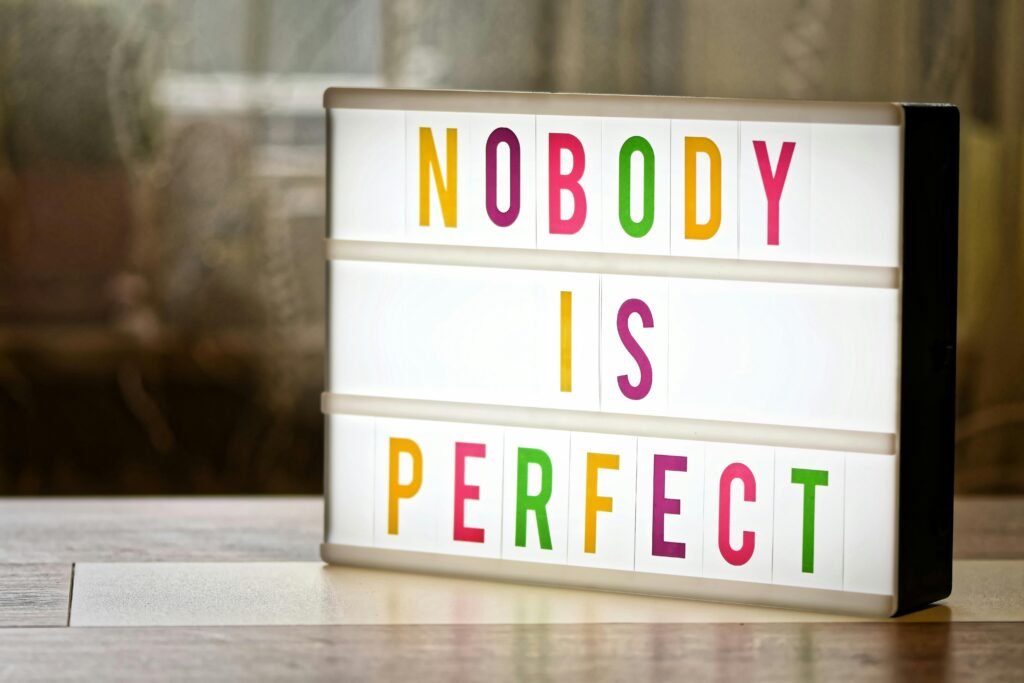
Introduction to Self-Improvement Myths
Self-improvement is often portrayed as a straightforward path filled with consistent victories and constant upward progress.
Social media, books, and motivational speeches frequently paint a picture of what personal growth should look like, offering a one size fits all formula for success.
However, this oversimplification ignores the complexities of real growth and creates unrealistic expectations that many struggle to meet.
One common misconception about self-improvement is that it should always feel empowering and exciting.
The truth is, personal growth is often messy, uncomfortable, and even discouraging at times.
Real change doesn’t follow a linear path, and setbacks are not only common but essential for learning and development.
When people expect every step of the process to feel uplifting, they may mistake natural struggles for failure, leading to unnecessary frustration.
Another myth stems from the idea that motivation alone is enough to fuel change.
While motivation can play a role in getting started, it’s rarely sufficient to sustain long term progress.
Instead, building habits, practicing discipline, and accepting the slower pace of lasting transformation are what truly make a difference.
This isn’t the glamorous side of self-improvement that’s often advertised, but it’s where the most meaningful progress happens.
There’s also a tendency to view success stories as universal examples to follow.
We often hear narratives about people who seemingly transformed their lives overnight, achieving remarkable results through sheer determination.
While inspiring, these stories often omit the nuances, challenges, and support systems that played a crucial role in their journey.
Comparing your progress to such stories can create unnecessary self-doubt, making you feel like you’re not doing enough.
Finally, there’s the misconception that self-improvement is about fixing flaws or becoming someone entirely new.
This can lead to an unhealthy focus on what’s “wrong” with you rather than appreciating your strengths and unique qualities.
Self-improvement doesn’t mean erasing who you are; it means building on your existing foundation in a way that feels authentic and meaningful to you.
The Myth of Endless Growth

The idea that personal growth should always be continuous and exponential has deeply influenced how we view self-improvement.
This belief creates an unrealistic standard, implying that progress is only valuable if it’s constant and always accelerating.
However, this mindset can be harmful, often leading people to overlook the natural rhythms of growth, which include periods of rest, plateau, and even regression.
These cycles are not signs of failure but are necessary parts of the process.
Pushing ourselves to improve without pause can lead to burnout, frustration, and a loss of perspective.
This constant pursuit of upward progress can prevent people from stepping back to evaluate if their goals still align with their values or if they’re pursuing something for the sake of maintaining momentum.
Another issue with the myth of endless growth is how it encourages comparison.
When others appear to be achieving consistent success, it can create unnecessary pressure to match their pace.
What often goes unseen are the hidden struggles, compromises, and sacrifices behind their achievements.
Social media, for instance, tends to amplify this issue, as it often shows only the highlights of someone’s journey, not the full picture.
It’s also important to recognize that personal growth isn’t always measurable.
Not every improvement will come with visible results or immediate rewards.
Sometimes, the most significant changes happen quietly, in the way we think, approach problems, or care for ourselves.
Focusing too much on tangible accomplishments can overshadow these quieter, but equally meaningful, forms of progress.
Lastly, the belief in endless growth can make it difficult to appreciate the present.
Always striving for the next milestone can distract from the progress you’ve already made and the growth that’s already taken place.
Recognizing the value of where you are now is just as important as working toward where you want to be.
Self-Improvement as a Product

The commercialization of self-improvement has transformed it from a deeply personal process into a booming industry filled with promises of quick and effortless change.
Companies market books, courses, and gadgets as if they hold the secret to transforming your life, often positioning their products as the missing piece to your happiness or success.
While these tools can sometimes be helpful, they frequently oversimplify what it takes to create real, lasting change.
For example, the rise of apps that claim to improve productivity or mindfulness in just a few minutes a day can create unrealistic expectations.
While such tools can provide structure or initial motivation, they’re not a substitute for building habits or engaging in the kind of self-reflection that leads to genuine growth.
Similarly, books or programs that guarantee success in a matter of weeks often gloss over the fact that meaningful change requires patience, effort, and a willingness to confront uncomfortable truths about yourself.
One issue with treating self-improvement as a product is that it can shift the focus away from introspection and self-awareness.
Instead of taking the time to understand your unique needs or challenges, you might find yourself following generic advice that doesn’t fully resonate or apply to your life.
This one size fits all approach can leave you feeling like you’re not making progress, when in reality, the problem isn’t you; it’s that the tools you’re using aren’t tailored to your situation.
Another drawback of the commercialization of self-improvement is how it can encourage the idea that growth has to be constant and measurable.
Many products promise visible results; such as losing a certain amount of weight, hitting specific financial goals, or developing a new skill by a set deadline.
This emphasis on external outcomes can make it easy to overlook the less tangible but equally valuable forms of progress, like gaining emotional resilience or cultivating self-compassion.
Finally, self-improvement marketed as a commodity can create a cycle of dependency.
If you’re always searching for the next book, course, or app to solve your problems, it can prevent you from trusting your own instincts and experiences.
True growth doesn’t come from buying more tools; it comes from learning how to rely on yourself and adapt to life’s challenges in a way that feels authentic to who you are.
Growth vs. Change

When thinking about personal development, it’s important to understand the distinction between growth and change.
Growth involves building on who you are and expanding your abilities or understanding, often rooted in a sense of progress that aligns with your values.
Change, however, is broader; it simply means something is different, but that difference isn’t inherently positive or aligned with what matters most to you.
For instance, you might switch jobs, thinking it’s a step forward, only to realize the new role doesn’t align with your strengths or goals.
While this is a change, it might not lead to growth if it’s not a move that resonates with your needs or long-term vision.
Similarly, adopting a new habit because it’s trendy; like trying the latest productivity system, might bring temporary novelty but won’t necessarily contribute to meaningful progress unless it fits your unique lifestyle and challenges.
Another factor to consider is the intentionality behind your actions.
Growth often requires reflection and deliberate effort, while change can happen passively or in reaction to external pressures.
For example, someone might adopt healthier eating habits as part of a thoughtful effort to feel better and care for themselves.
This intentional decision reflects growth because it’s tied to personal priorities.
On the other hand, a sudden shift to restrictive dieting after seeing others do it on social media might reflect change, but it’s not necessarily growth if it comes from comparison or external expectations rather than a genuine desire to improve well being.
It’s also essential to recognize that growth doesn’t always come with visible results.
Sometimes it’s internal, like learning how to set boundaries or being more patient with yourself.
These types of progress can be harder to identify because they don’t have immediate, tangible outcomes.
Change, on the other hand, often feels more noticeable; even if it’s not meaningful.
For example, rearranging your schedule may look productive but might not truly address deeper issues like poor time management or lack of focus.
By focusing on growth rather than chasing constant change, you can prioritize what truly supports your development, even if the process feels slower or less dramatic.
The Pressure to Be Perfect

The drive to constantly improve can easily spiral into an overwhelming pressure to appear flawless in every aspect of life.
Social media often amplifies this by showcasing highlight reels of others’ achievements, making it seem as though everyone else has it all figured out.
This creates an illusion that perfection is attainable if only you work hard enough or follow the “right” strategies.
However, this mindset sets an impossible standard, leaving little room for mistakes, rest, or simply being human.
When self-improvement becomes synonymous with perfection, the focus often shifts from growth to performance.
You might find yourself striving to meet external expectations rather than pursuing changes that feel meaningful or aligned with your values.
For example, instead of developing a healthier relationship with fitness, you might push yourself toward extreme goals just to match what you see others doing, regardless of whether it’s sustainable or healthy for you.
This pressure can also lead to overanalyzing your every action, creating a sense of failure when you don’t meet unrealistic goals.
For instance, missing a workout or falling behind on a new habit can feel like a personal shortcoming rather than a natural part of the learning process.
This all or nothing thinking makes it harder to stay consistent because the focus becomes avoiding mistakes rather than appreciating progress.
Another consequence of chasing perfection is neglecting the need for balance.
In the rush to do more, achieve more, and be more, it’s easy to forget that downtime and imperfections are not signs of weakness but vital components of a fulfilling life.
Constantly striving to optimize every moment can leave little space for enjoyment, connection, or simply being present in your day to day life.
The pressure to perfect every area of life can also overshadow your individuality.
Trying to mold yourself into an ideal version that mirrors societal expectations or trends might cause you to lose sight of your strengths, quirks, and values.
This creates a disconnect between who you are and who you think you “should” be, which can undermine confidence and self-worth over time.
It’s important to recognize that no one’s journey is without flaws.
Mistakes, pauses, and missteps are not only inevitable but also necessary for true growth.
Instead of striving for perfection, allow space for authenticity, imperfection, and self-compassion; these are the qualities that create lasting, meaningful progress.
Authentic Self-Improvement

Authentic self-improvement is less about overhauling your entire life and more about making intentional, manageable adjustments that feel meaningful to you.
It requires patience and self-awareness, allowing space for personal needs and priorities to guide the process.
Rather than chasing trends or generic advice, consider what genuinely resonates with your goals and values.
One effective strategy is to focus on creating a balance between effort and rest.
For instance, taking short breaks while learning a new skill can improve not only your understanding but also your ability to retain information.
This approach underscores the importance of pacing yourself, rather than pushing for constant productivity or immediate results.
It’s also helpful to approach self-improvement with curiosity instead of judgment.
Trying new things, experimenting with different routines, and reflecting on what works can help you identify what aligns with your personal needs.
For example, you might try journaling to better understand your thoughts and patterns, or adjust your daily habits to prioritize what truly makes you feel grounded and motivated.
These small actions, while not flashy, often lead to lasting, meaningful changes over time.
Additionally, authentic self-improvement involves accepting that not every day will be equally productive or groundbreaking.
Some days might feel stagnant, while others bring noticeable progress.
Both are valuable.
By shifting your focus away from rigid expectations and instead appreciating the small victories, you can foster a more sustainable and compassionate approach to personal growth.
Another key element is learning to trust yourself and your instincts.
The self-help industry often markets quick fixes or universal solutions, but meaningful growth happens when you explore what works best for you.
While tools and resources can offer guidance, real progress often comes from listening to your inner voice and adapting strategies to fit your life.
Ultimately, self-improvement is an ongoing, personalized process.
It’s not about meeting external standards or achieving perfection but about making thoughtful adjustments that honor who you are and where you want to go.
Conclusion: Embracing Realistic Growth

The journey of self-improvement doesn’t need to follow a rigid formula or meet unrealistic expectations.
Real growth happens when we approach it with patience, self-awareness, and an understanding that progress looks different for everyone.
Instead of focusing solely on achieving constant upward momentum, we can benefit from embracing the natural ups and downs that come with genuine change.
By letting go of the pressure to be in a perpetual state of transformation, we open ourselves up to a healthier and more sustainable way of growing.
It’s not about achieving dramatic results overnight or constantly striving for perfection.
Instead, meaningful self-improvement involves small, intentional steps that align with our values and goals.
This process is more about consistency than intensity; building habits and making adjustments over time rather than chasing instant results.
It’s also essential to redefine what success in personal growth looks like.
Success isn’t limited to visible achievements or grand milestones; sometimes, it’s as simple as learning to navigate challenges with greater resilience or finding moments of calm in a busy day.
Recognizing and celebrating these quieter, less obvious forms of progress can make the journey feel more rewarding and authentic.
Additionally, growth requires flexibility. As life changes, so do our priorities and goals.
What may have felt important at one point might shift, and that’s okay.
Allowing space for these changes and regularly checking in with yourself ensures that your efforts remain meaningful and aligned with who you are.
Growth isn’t about sticking to a rigid plan; it’s about adapting and evolving in ways that make sense for your current circumstances.
Finally, self-compassion plays a crucial role in realistic growth.
The process of improving yourself isn’t always smooth, and setbacks are inevitable.
Rather than viewing these moments as failures, they can be seen as opportunities to learn and recalibrate.
Giving yourself the grace to stumble and recover is just as important as the effort you put into moving forward.
Realistic self-improvement isn’t about fixing everything or becoming someone else.
It’s about appreciating where you are, understanding where you want to go, and taking steps that feel right for you.
By focusing on authenticity, patience, and intentionality, you can create a path of growth that’s both fulfilling and sustainable.
